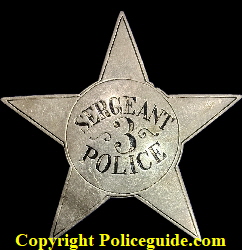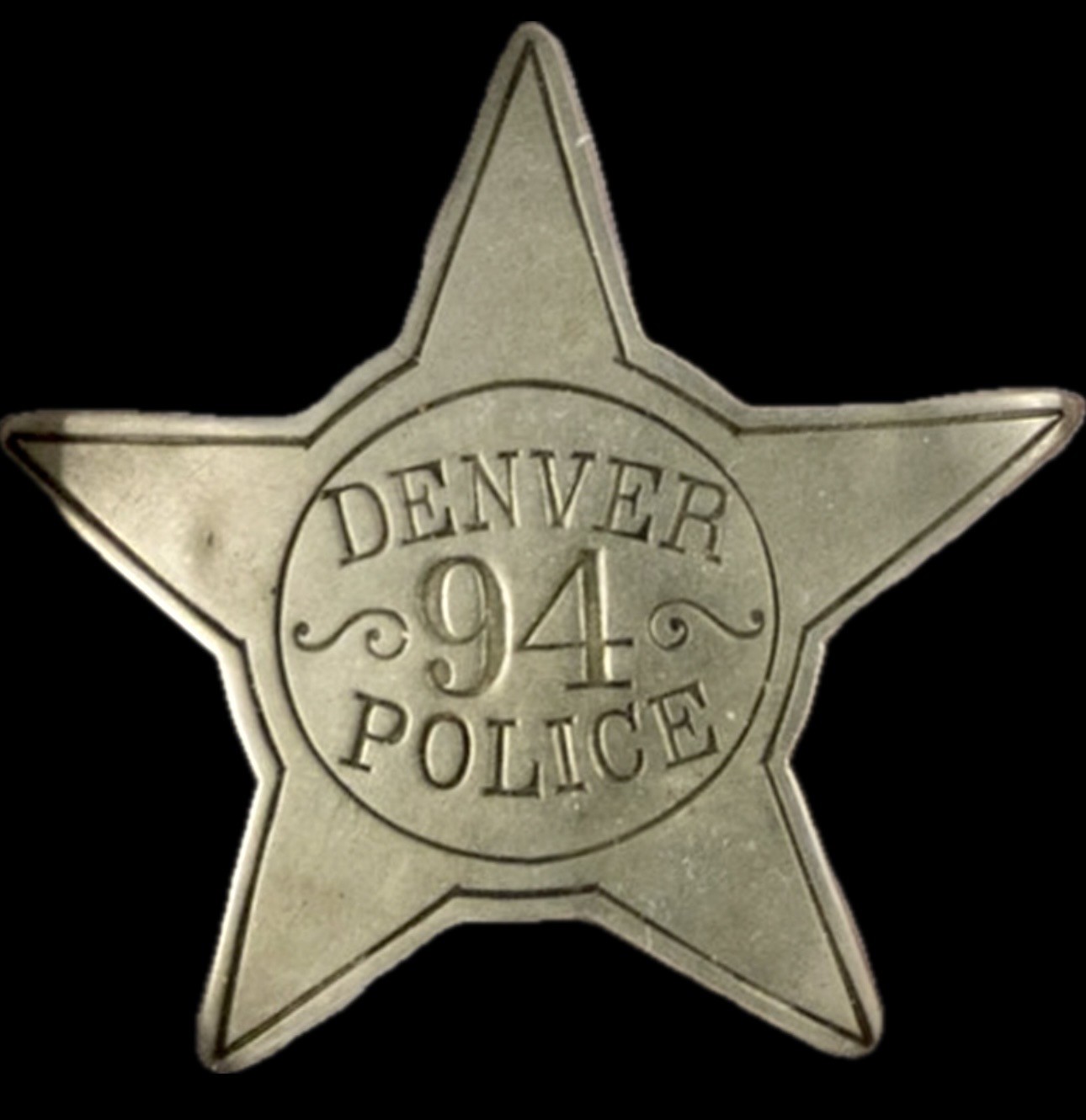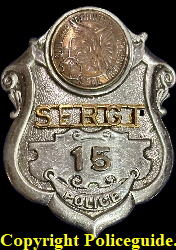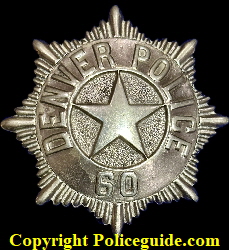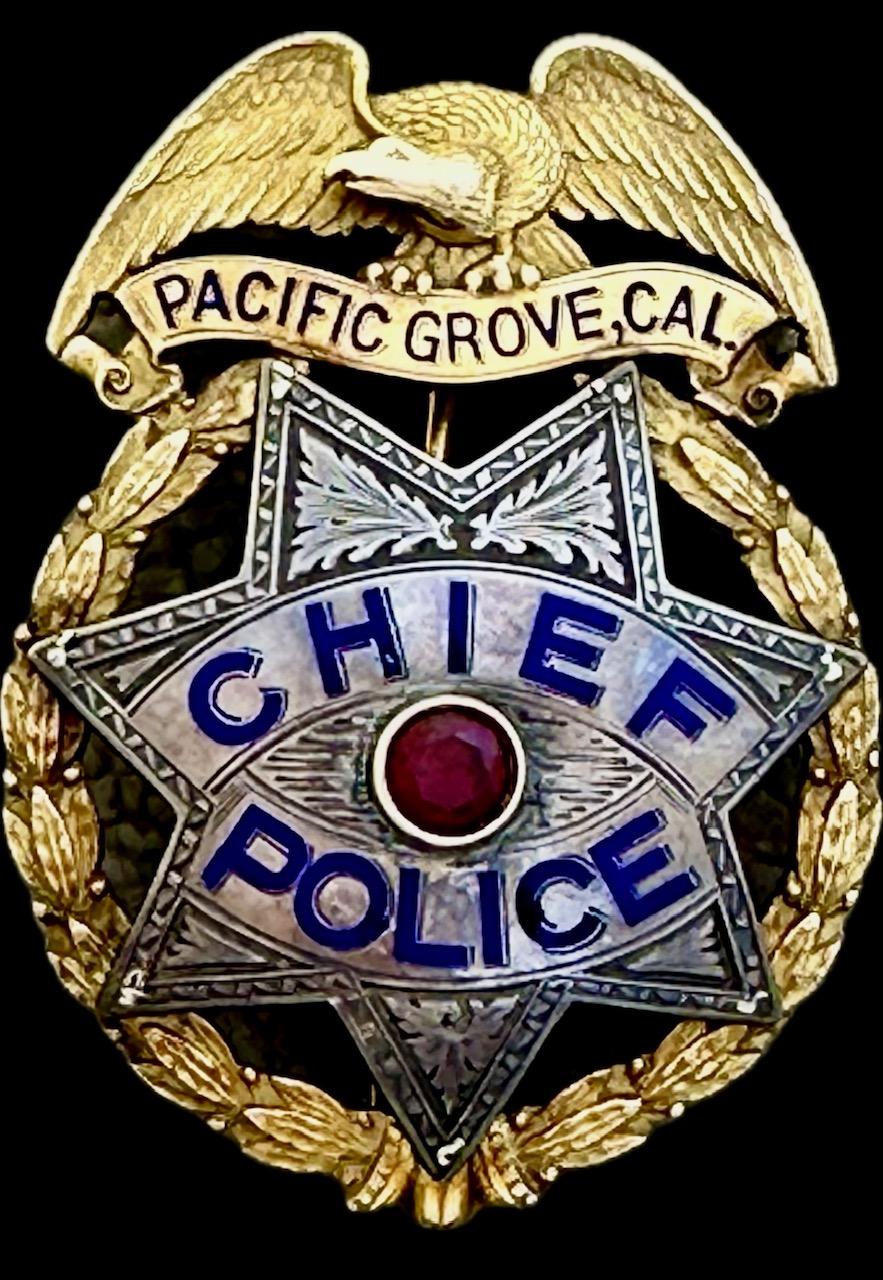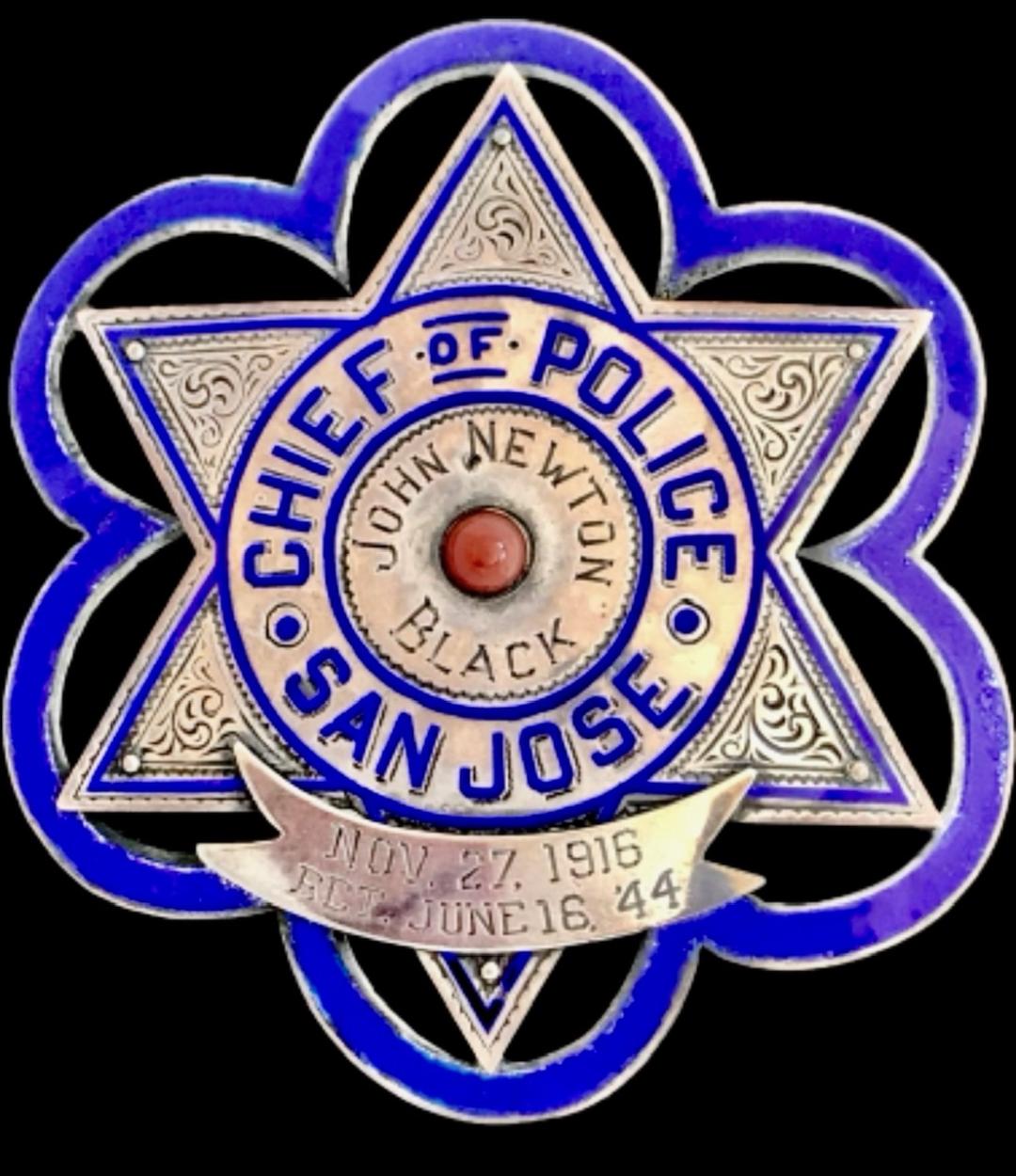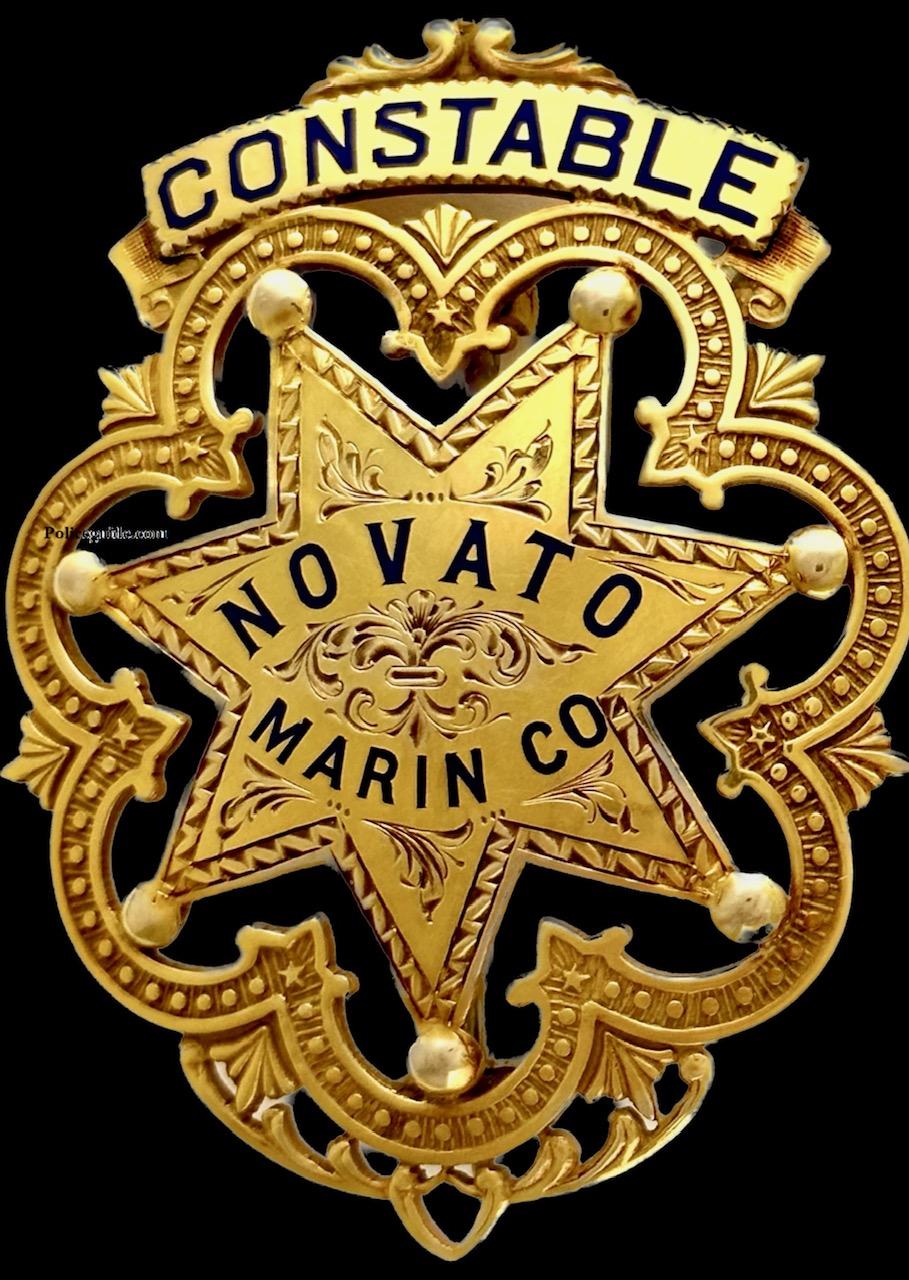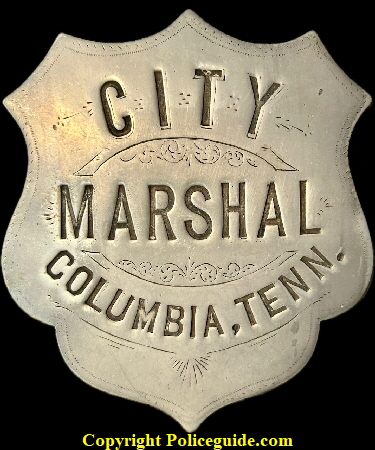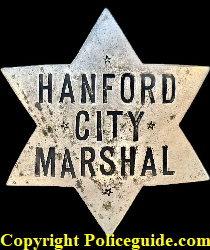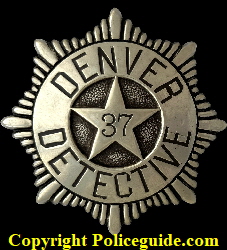Citizens Guard 1893-1902
Hawaiian Islands
Sworn Special Policemen.
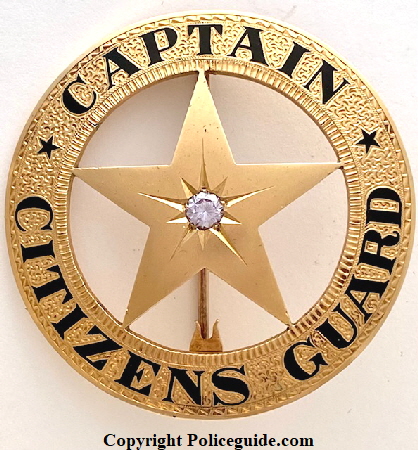
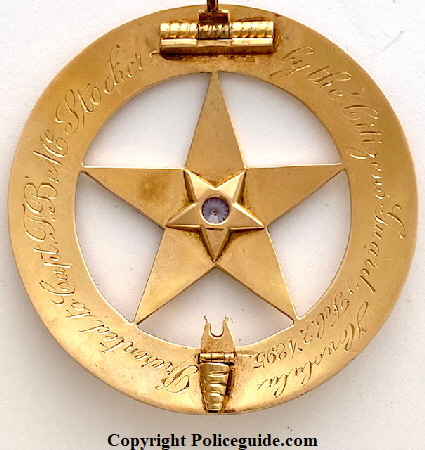
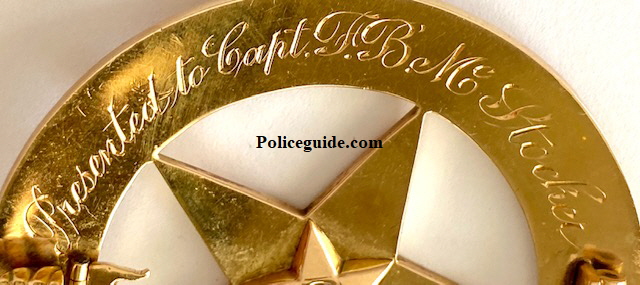
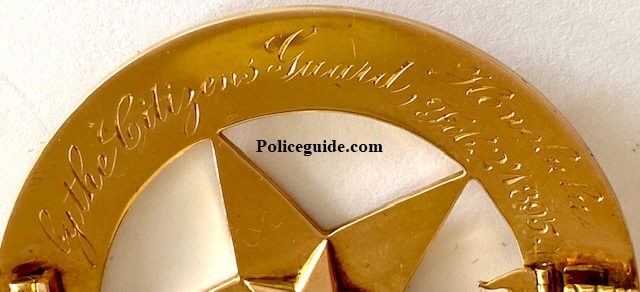
14k gold presentation badge, Captain Citizens Guard badge presented on February 2, 1895 to Captain F. B. McStocker.
Back of badge showing T-pin, Megaphone Catch with safety bar and presentation: Presented to Capt. F. B. McStocker by the Citizens Guard Honolulu Feb. 2, 1895.
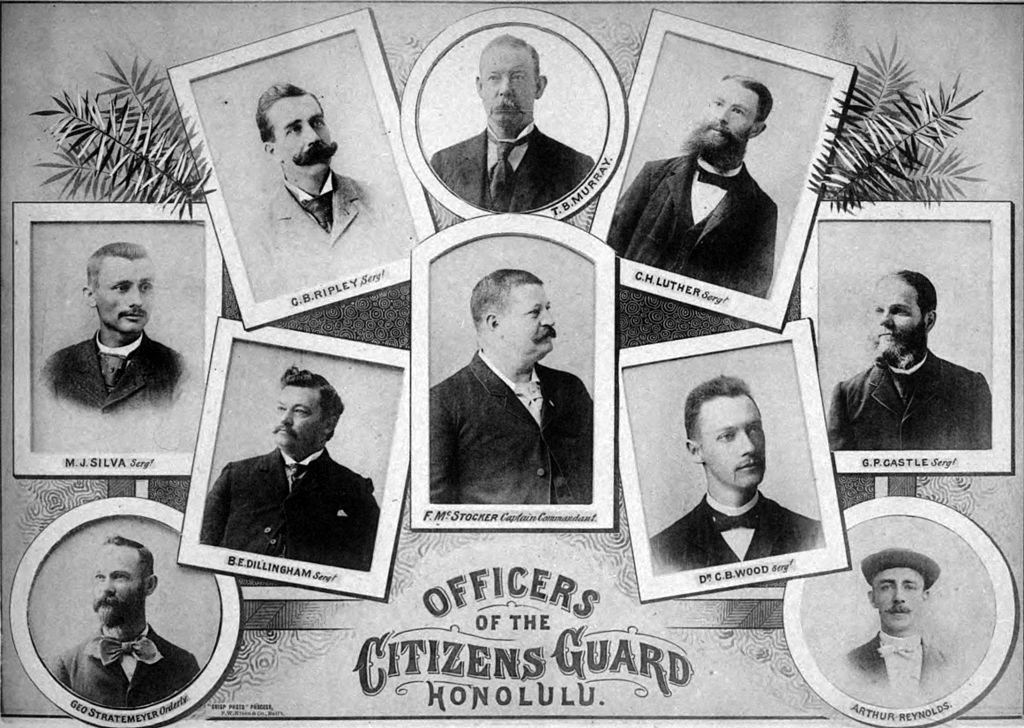
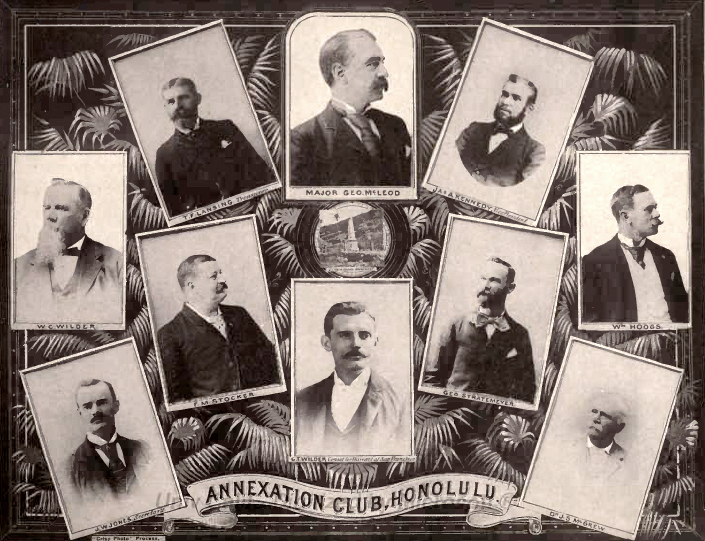
The Citizens Guard was organized by Frank B. McStocker, chairman of the Annexation Club Executive Committee, Attorney General A.S. Hartwell, C. Stratemeyer and T.B. Murray shortly after the establishment of the Provisional Government in order to strengthen the cause of the Annexation Party. The Citizens Guard initial organization consisted of nine squads totaling 390 men. After the 1895 Rebellion, the organization comprised over 600 volunteers. The Citizens Guard was commissioned in 1893 by the Marshal's Office under the Department of the Attorney General as Special Police Officers. It was an organized volunteer militia and functioned as an emergency police force assisting the Sheriff's Departments on Oahu, Hawaii, Maui and Kauai in maintaining law and order; preserving peace and public safety; protecting life and property; and defending the government against enemy attacks. The Marshal was designated the Commander of the Citizens Guard and commissioned the officers who commanded the divisions. Company officers consisted of one captain, two lieutenants, one orderly sergeant, one quartermaster sergeant, four sergeants, and four corporals who were elected by their respective company members. Companies were commanded by Captains who were responsible for transmitting orders; requisitioning and issuing supplies; maintaining an inventory of stores; and compiling a complete company roster which consisted of names, rank, squad designation, telephone number, occupation, and equipment issued. The company captain or other senior officer maintained a daily record of orders, instructions and events at company headquarters.
Membership in the Citizens Guard was restricted to men who took the oath of loyalty to the Provisional Government and later to the Republic. Each applicant was approved by their respective company captain and the Commander of the Citizens Guard. Many members of the Citizens Guard became proficient in marksmanship and qualified to join the National Guard Sharpshooter units and the Mounted Police force. Drills, target practices and shooting matches were held by Citizens Guard units to maintain marksmanship and discipline. All members were required to maintain rifles issued to them and keep at least 20 rounds of ammunition. Officers were armed with a sidearm pistol and privates with carbines. The Citizens Guard was called into active service during the January 1895 rebellion to guard government buildings and assist police officers. In September 1895, the Citizens Guard was called out by Board of Health President William O. Smith to monitor the movement of resident aliens in Honolulu. Following the 1895 rebellion, the Citizens Guard was reorganized into five divisions. The divisions were composed of companies or squads and organized as follows: 1st Division consisted of companies within the Honolulu city limits; 2nd Division comprised the Mounted Reserve and units on the island of Oahu outside of Honolulu; 3rd Division consisted of companies organized on the island of Hawaii; 4th Division consisted of companies organized on the island of Maui; 5th Division comprised units on the island of Kauai. The Marshal remained the Commander of the Citizens Guard with members commissioned as Special Police Constables. With the United States annexation of the Republic of Hawaii, the Citizens Guard disbanded as a volunteer militia on July 18, 1898. The organization remained active and functioned as a social club.

A Star for Frank
Robert Mohr, Honolulu 2013
On February 4, 1895 an article entitled “A Star for Frank” appeared on page 3 in the Honolulu newspaper The Hawaiian Star. It reported that “W. P. O’Brien presided at the gathering of Citizens’ Guards at the station house Satruday night and on behalf of members made a presentation to Frank B. McStocker, Captain of the Guard. Marshal Hitchcock placed a badge on the Captain’s breast and three cheers were given. Mr. McStocker made an appropriate address, expressing gratification and complimenting the men. The badge is a star of gold with a diamond in the center”. Although it is not hallmarked it was very likely made by H. F. Wichman, prominent Honolulu jeweler and a first sergeant in the Citizens Guard. Wichman served under Captain McStocker during the rebellion.
The following day on February 5, 1895 it was also reported in the Daily Bulletin of Honolulu on page 5 that “Frank B. McStocker, Captain of the Citizens’ Guarad, has been presented with a badge by that body. The presentation was made in recognition of the ability with which Captain McStocker commanded that branch of the Government’s Forces in the rebellion”.
Finally, in the March, 1895 edition of The Friend, under the heading record of events, Feb 2, it was reported that “Capt. F. B. Mc Stocker was decorated with a badge by a number of the Citizens Guard”. First known as the Friend of Temperance and Seamen and published monthly in Honolulu beginning in 1845, the paper was devoted to the “moral and religious interests of Hawaii”. The publisher stated that it “was the oldest paper in the Pacific”.
Hawaiian Gazette April 16, 1895 p6
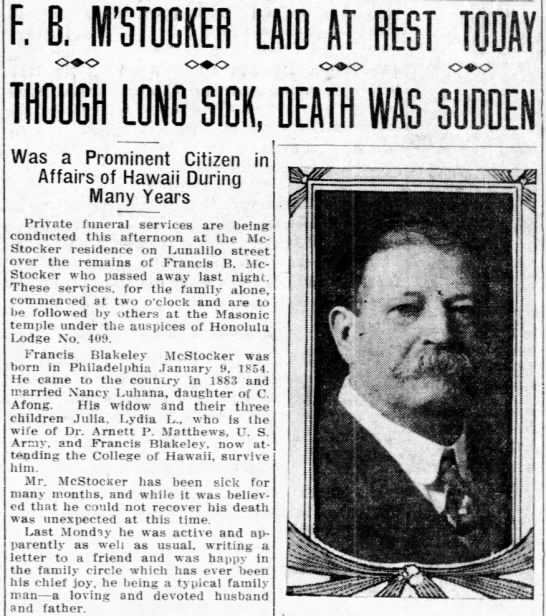
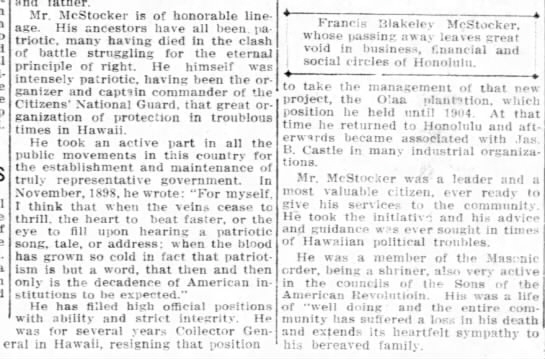
The Hawaiian Star Feb. 4, 1895 p3
The Hawaiian Gazette Feb. 5, 1895 p6
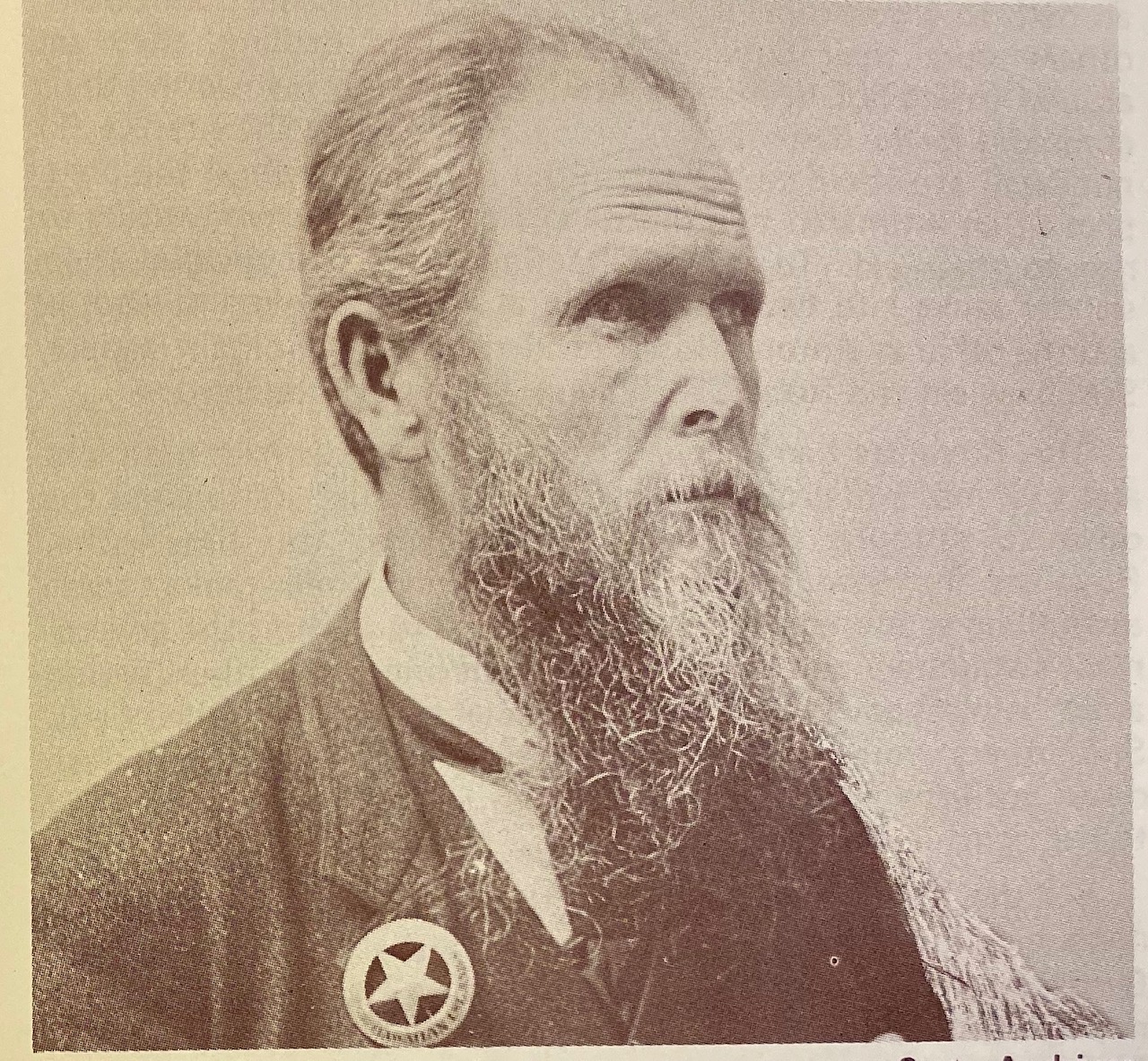
The Hawaiian Star March 11, 1895
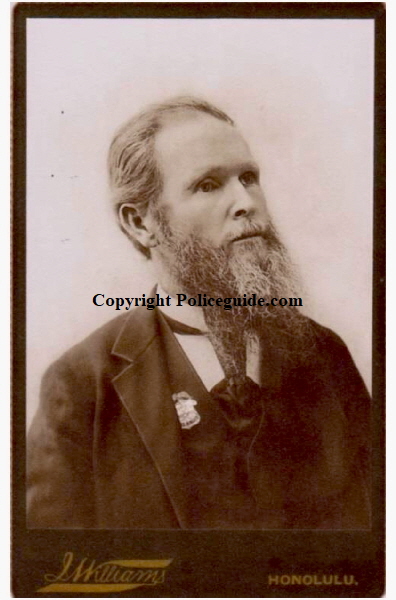
Marshal of the Hawaiian Islands E. G. Hitchcock portrait. He was appointed as Sheriff of the Island of Hawaii on April 5, 1888. In early 1893 he became Marshal of the Hawaiian Islands until he resigned on August 1, 1895 when he returned to his duties as Sheriff of the Island of Hawaii.
Portrait of Sheriff E. G. Hitchcock He was appointed as Sheriff of the Island of Hawaii on April 5, 1888. In early 1893 he became Marshal of the Hawaiian Islands until he resigned on August 1, 1895 when he returned to his duties as
Sheriff of the Island of Hawaii.

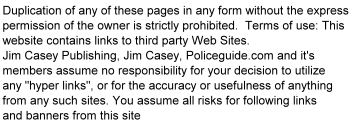
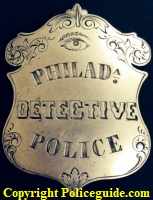
This site has over 200 pages so you may want to Search it with our custom search engine, AD FREE generated by Google.
Click Here
Lawman Online Badge Museum, Police Online Badge Museum, Sheriff Online Badge Museum, Constable Online Badge Museum.
Jim Casey’s Policeguide.com
Your guide to the wonderful world of badges.

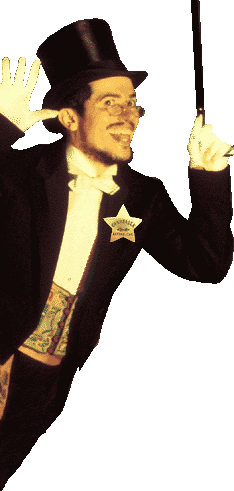
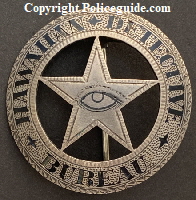
This site has over 200 pages so you may want to Search it with our custom search engine, AD FREE generated by Google.
Click Here
